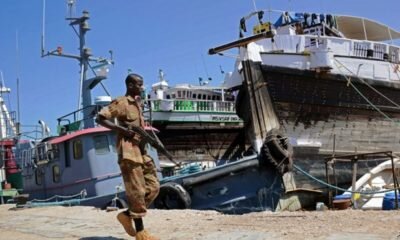AL JAZEERA — Prominent Saudi businessman Prince Alwaleed bin Talal, says he expects to soon be released after two months of detention on allegations of corruption.
Prince Alwaleed, who was arrested among dozens of other royal family members, ministers, and top businessmen, said in an exclusive interview with Reuters news agency on Saturday that he expected to be cleared of charges and released from custody within the next few days.
“There are no charges. There are just some discussions between me and the government,” the 62-year-old said.
“I believe we are on the verge of finishing everything within days.”
He and his counterparts were arrested in early November during the kingdom’s “anti-corruption purge”, and were held collectively in the country’s Ritz Carton hotel.
In his interview, Prince Alwaleed said he was continuing to maintain his innocence of any corruption in talks with authorities. He also said he expected to remain in full control of his global investment firm, without being required to give up assets to the government.
During a previous interview with Reuters, a Saudi official said charges against the billionaire prince included money laundering, bribery and extorting of officials.
Also speaking to officials in the kingdom, the Reuters news agency said Saudi authorities were asking detainees to hand over assets and cash in return for their freedom.
The deals involve separating cash from assets, such as property and shares, and looking at bank accounts to assess cash values, one source told Reuters.
Prince Alwaleed appeared frail in comparison to his last public appearance in a televised interview last October, but confirmed that he was being treated well, dismissing rumors that had said otherwise.
Showing off his private office, dining room and kitchen in his hotel suite, Prince Alwaleed said he agreed to the interview mainly to prove that such rumours were false.
The release of Prince Alwaleed, whose net worth has been estimated by Forbes magazine at $17bn, may reassure investors in his business empire. Directly or indirectly through his firm, Kingdom Holding, he holds stakes in companies such as Twitter Inc and Citigroup Inc,
He has also invested in top hotels around the world, including the George V in Paris and the Plaza in New York City.
Saudi authorities said they aimed to reach financial settlements with most suspects and believed they could raise some $100bn for the government this way.
In recent days, there have been signs the purge is winding down; several other prominent businessmen, including Waleed al-Ibrahim, owner of regional television network MBC, have reached financial settlements with authorities, an official source told Reuters on Friday, though terms were not revealed.
Prince Alwaleed said his own case was taking longer to conclude because he was determined to clear his name completely, but he believed the case was now 95 percent complete.
“There’s a misunderstanding, and it’s being cleared. So I’d like to stay here until this thing is over completely and get out and life goes on,” he said, adding that he plans to live in the kingdom after his release.


 Minnesota1 day ago
Minnesota1 day ago
 KENYA2 days ago
KENYA2 days ago
 Briefing Room2 days ago
Briefing Room2 days ago
 KENYA2 days ago
KENYA2 days ago
 Crime2 days ago
Crime2 days ago
 UK2 days ago
UK2 days ago
 Minnesota2 days ago
Minnesota2 days ago
 Saudi Arabia, the United Arab Emirates, Bahrain and Egypt have vowed to take ‘political, economic and legal measures’ after Qatar’s refusal to accept a list of demands presented by the four countries.
Saudi Arabia, the United Arab Emirates, Bahrain and Egypt have vowed to take ‘political, economic and legal measures’ after Qatar’s refusal to accept a list of demands presented by the four countries.














 THE rivalry between Saudi Arabia and the United Arab Emirates (UAE) on one side and the Gulf state of Qatar on the other is spilling poison into the Horn of Africa, embittering animosities between half a dozen countries in the region. Several of them have seized an opportunity to benefit from instability in the Arabian peninsula by offering bases. But if Arab conflicts spread, countries in the Horn could be dragged into the fray.
THE rivalry between Saudi Arabia and the United Arab Emirates (UAE) on one side and the Gulf state of Qatar on the other is spilling poison into the Horn of Africa, embittering animosities between half a dozen countries in the region. Several of them have seized an opportunity to benefit from instability in the Arabian peninsula by offering bases. But if Arab conflicts spread, countries in the Horn could be dragged into the fray.











You must be logged in to post a comment Login